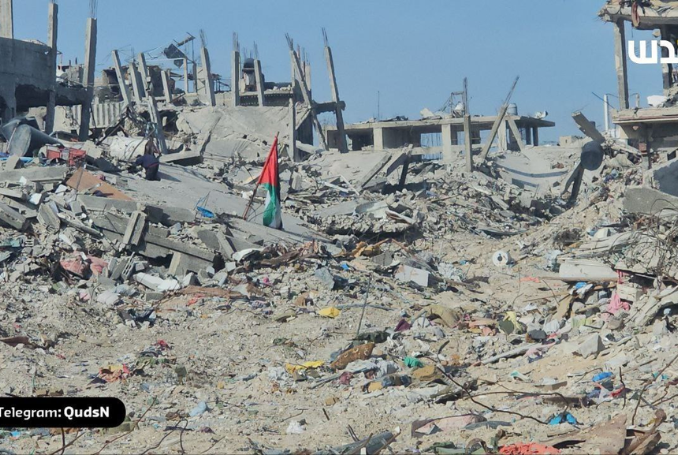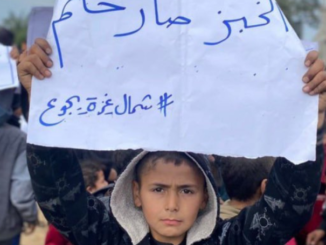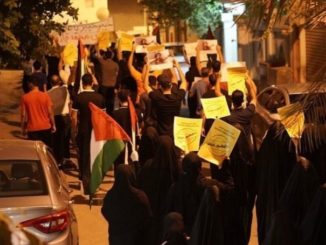
Amid the fragile ceasefire, displaced families in northern Gaza face a new battle: finding shelter in a region devastated by destruction.
“Thank God those displaced to the south haven’t returned immediately after the ceasefire”.
This ironic phrase has become a common refrain in northern Gaza. At first, it might sound surprising. After all, the return of the displaced should be a time of joy—a long-awaited moment to reunite with loved ones after months of separation and hardship. It has also been a very critical issue that hindered the path of negotiations between the Palestinian Resistance and Israel for months.
But when you delve deeper, the sentiment reflects a harsh reality: the brief window between the ceasefire and the return of the displaced is barely enough time to regain stability in an already devastated region.
The Battle for Shelter Begins
As the war ended, a new battle began—the desperate search for shelter.
“We are living in their homes,” said Osama Hamed, a father of four, his voice heavy with sadness. “We barely have time to pack our bags and figure out where to go before the original owners return to claim what’s rightfully theirs.”
Since the attack on the Jabaliya Camp, Osama and his family have been staying in a house of relatives in Al-Jalaa, western Gaza City.
“I kept praying that my house would still be standing,” Osama said. “Even if it was partially destroyed, I just wanted it to remain standing to return to.”
On January 19, even two hours before the ceasefire began, Osama rushed to check his home in Jabalia. What he found crushed him—the building was reduced to rubble.
The house wasn’t just Osama’s; it was a family home built by his late father. Osama and his four brothers each had an apartment there, a symbol of their father’s hard work. Now, that legacy is gone. The brothers and their families face an uncertain future, each struggling to find shelter.
“Seeing the ruins, I felt paralyzed,” Osama told The Palestine Chronicle. “Questions overwhelmed me—where will we go? What will we do? I didn’t even have the chance to grieve.”
“The house was our haven, and now it’s gone,” he lamented.
The family hosting Osama is expected to return to their own home soon, leaving him with no choice but to find another shelter.
“I even considered erecting a tent over the rubble,” Osama admitted. “But the area is uninhabitable—a wiped-out zone with no infrastructure, no water, and barely any streets left intact.”
The destruction in the Jabaliya refugee camp is staggering. Homes have been obliterated, streets bulldozed, water lines destroyed, and basic infrastructure wiped out. Moving through the area is a challenge, let alone trying to rebuild.
Osama’s other options disappeared just as quickly. His cousin’s vacant apartment was already occupied, and his in-laws’ home in northern Gaza was also destroyed.
“I am still searching for a place to stay,” Osama said.
Lost Shelter, Lost Livelihood
Adding to Osama’s struggles is the loss of his livelihood.
“I am a fabric sewer, but all my machines are now buried under the rubble,” he said.
Before the war, Gaza’s electricity crisis forced Osama to buy solar panels for $8,000—four times their pre-war price.
“Now, I have nothing,” he told us. “I need a new sewing machine and another solar system, but both are nearly impossible to find.”
Osama’s brother, Salem, also lost his livelihood. His supermarket, located in the same building, was destroyed. While a relative offered Salem a temporary, unfurnished apartment, he faces uncertainty about reopening his business.
“Nothing is stable,” Salem said. “Products come and go, prices fluctuate wildly. I’m afraid of buying stock and losing everything again.”
Battling against Time
As Sunday approaches—the day the displaced are expected to return to Gaza City—families like Osama’s are racing against time to secure shelter.
For Jawad, a resident of Jabaliya and a new father, the ceasefire brought no relief. His home, though still standing, was severely damaged.
“The walls are gone, the furniture is destroyed,” Jawad said. “But the columns are intact, so I have no choice but to make it livable.”
Since the ceasefire began, Jawad and his brother have worked tirelessly to clear rubble and cover the structure with makeshift canopies.
“Our neighborhood is uninhabitable,” Jawad admitted. “But where else can we go? I can’t afford to rent, and there’s no land here for camps.”
Unlike southern Gaza, where agricultural lands can accommodate makeshift camps, Gaza City and northern Gaza are densely populated, with little space to spare.
In northern Gaza alone, 450,000 people are now homeless, scrambling to find even the barest shelter.
The ceasefire may have brought an end to the bombs, but for many in Gaza, the struggle for survival is only just beginning.
(The Palestine Chronicle)

– Noor Alyacoubi is a Gaza-based writer. She studied English language and literature at al-Azhar university in Gaza City. She is part of the Gaza-based writers’ collective We Are Not Numbers. She contributed this article to The Palestine Chronicle.








Be the first to comment